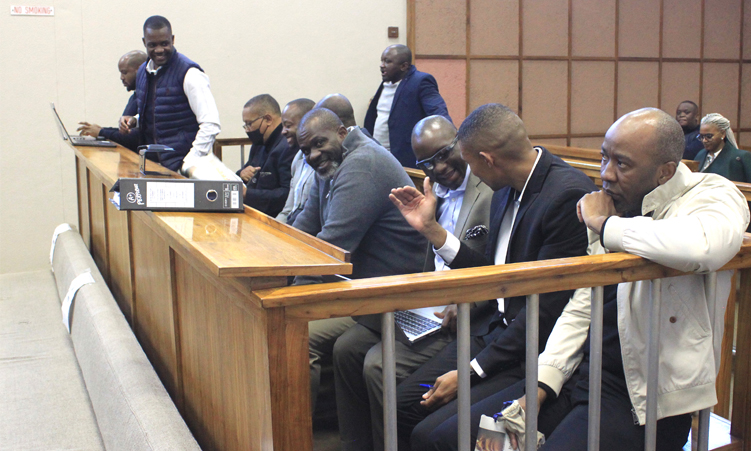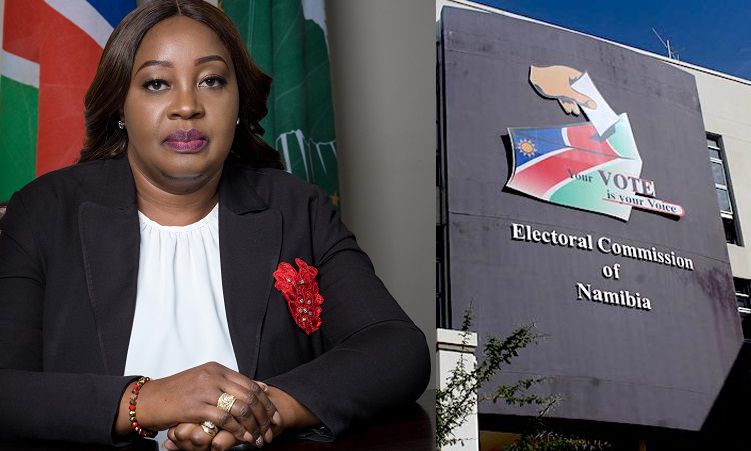Local think tanks have flagged the lack of transparency in Namibia’s oil exploration sector.
Institute for Public Policy and Research (IPPR) executive director Graham Hopwood says politically connected individuals have been given petroleum exploration licences (EPLs) by the Ministry of Mines and Energy.
His sentiments come amid a third oil discovery with partners Shell and QatarEnergy in the Jonker-1X deepwater exploration well in the Orange Basin offshore southern Namibia.
“We have to avoid secret, shady deals by shining a light on the licences and contracts that are handed out,” Hopwood says.
He says it is crucial to avoid the emergence of a privileged few who will benefit disproportionately from the country’s oil discoveries.
Hopwood further raises the issue of Namcor, the state-owned enterprise that holds a 10% share in most EPLs.
He says the potential for huge profits when production commences raises concerns about the company’s transparency and accountability, which must be carefully monitored to prevent abuse and corruption.
“We can’t let the oil discoveries become a feeding trough for a chosen few,” Hopwood says.
Sharing these sentiments, political analyst Henning Melber cites Norway as an example of a country which successfully avoided the resource curse by depositing its income from oil into a reserve fund, which was not tapped until recently, accumulating enormous wealth.
However, Melber says Namibia is not in a similar economic situation to Norway and may not be able to follow its example.
He says Botswana is another African country that served as a role model by using income from its diamond boom to provide healthcare services and invest in education, thereby benefiting its citizens and future generations.
“Whichever way, such revenue requires transparency, accountability and resource management by individuals with the utmost integrity. Checks and balances are essential ingredients,” Melber says.
Fair deals that secure a reasonable share of the profits for Namibians are also crucial, whether the companies involved are Namibian or foreign, he says.
Without such measures, he says, the benefits of natural resources may not reach ordinary citizens, and the country may suffer the resource curse.
Bank of Namibia governor Johannes !Gawaxab last week called for the establishment of competent and accountable institutions to avoid the resource curse.
BANKING ON TRANSPARENCY
Both Hopwood and Melber commends the government’s intention to join the Extractive Industries Transparency Initiative (Eiti), a global standard for promoting transparency and accountability in the extractive sector.
Hopwood says joining the initiative will require the government to publish a lot of information on mining, oil and gas and potentially fisheries, green hydrogen and forestry.
“The Eiti standard requires that contracts are published and that beneficial ownership registers are created so we can see who really owns the companies involved in the various sectors,” Hopwood says.
He says the same standard should be applied to the country’s green hydrogen project, which, he says, started on the wrong footing when Hyphen Hydrogen Energy was selected as preferred bidder without following the Public Procurement Act.
“Going forward, we want to see an ‘open contracting’ approach, meaning, for example, that the contract between Hyphen and the government which is currently being negotiated is published in full,” he says.
Eiti also requires oversight by multi-stakeholder bodies, including various sectors of society beyond the government.
“This will help to minimise the possibility of cosy deals and secret arrangements which may see funds being syphoned off or wasted,” Hopwood says.
The IPPR also welcomes the introduction of a sovereign wealth fund, which would go some way towards ensuring that funds raised from the oil boom are used responsibly.
Melber says given the current frustration with corruption, the government would be well advised to establish a consultative process and mechanism with civil society institutions with credibility, willing to be entirely open to scrutiny.
“So far, Namibia is not one of the more than 50 members of the Eiti yet. This could be a first step in the right direction,” Melber says.
He calls for a carefully planned strategy on resource extraction that would also ensure a maximum of local value-added processing, instead of simply exporting raw materials.
Stay informed with The Namibian – your source for credible journalism. Get in-depth reporting and opinions for
only N$85 a month. Invest in journalism, invest in democracy –
Subscribe Now!








